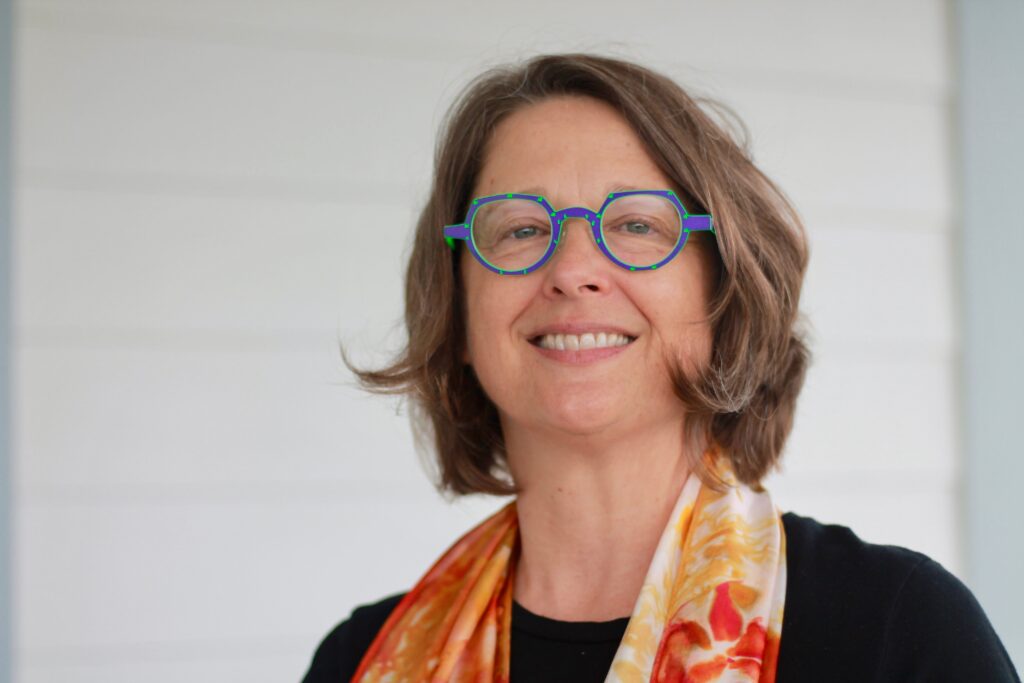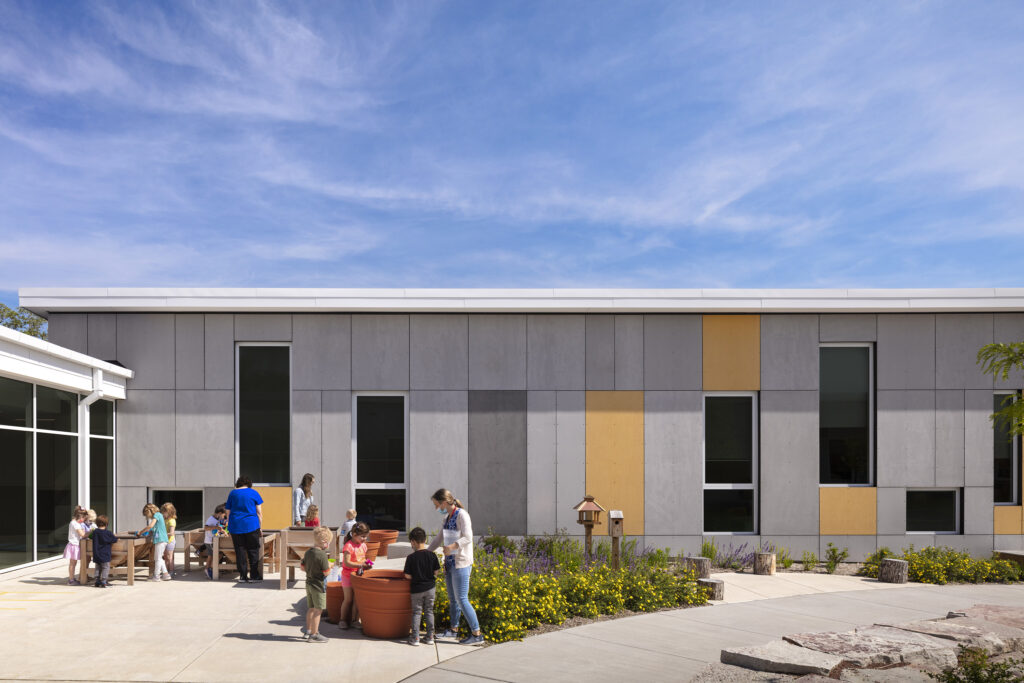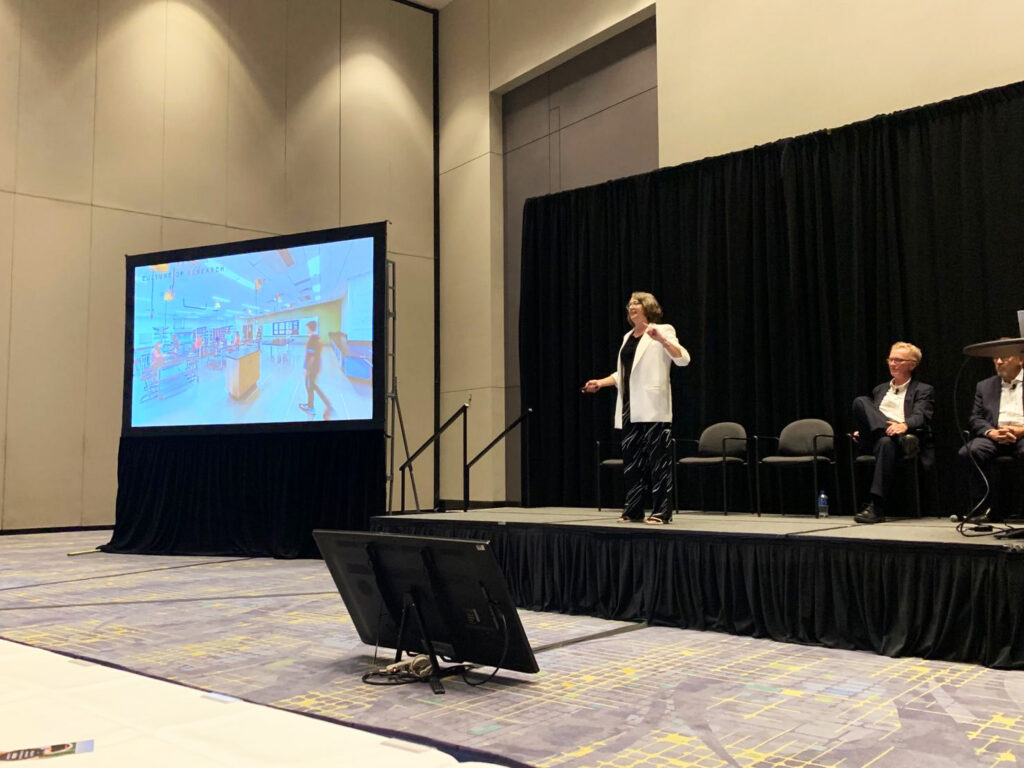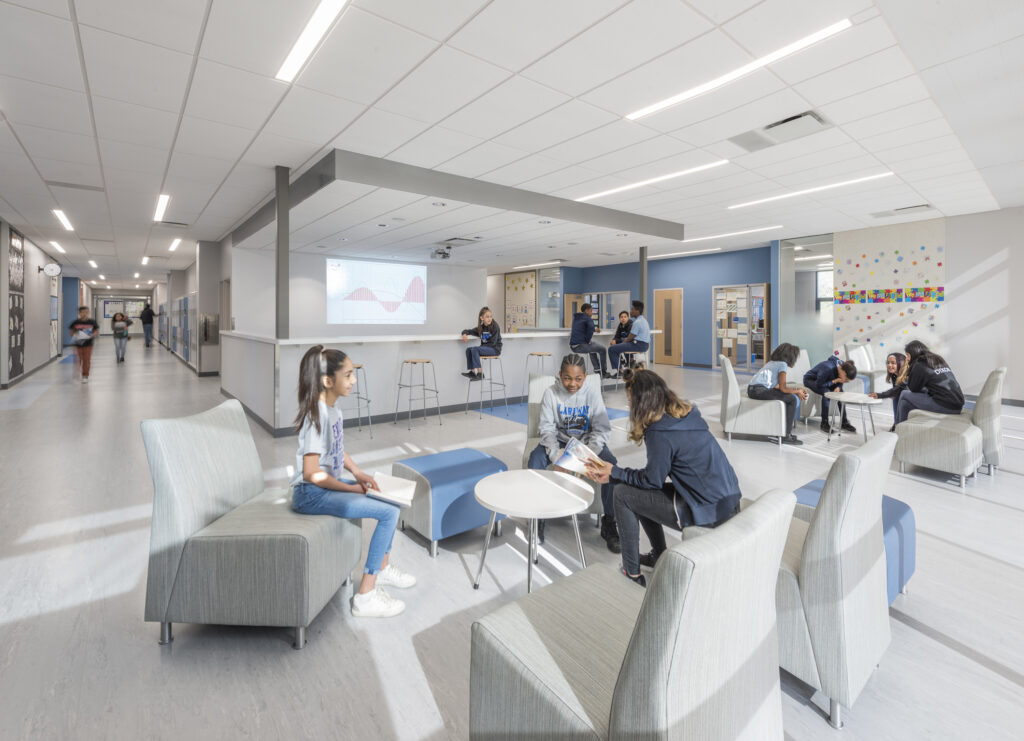EDmarket Leadership Position: Architect & Designer Council member
Company: Legat Architects
Title: Principal | Director of Learning
Years in the education business: 35 years
Firm:

When was your firm founded and how?
Legat Architects was founded in 1964 in a Waukegan, Illinois home, then moved into a renovated church in that same city. We gained a reputation for projects that were on time, on budget, and responsive. In the ensuing decades, we opened more studios and took on higher-profile projects. Our work won more design awards, while our portfolio spread to more than 30 countries. Though today Legat stands as a leading design firm, our legacy of responsive client service and employee empowerment remains at our core.

Since the beginning, we supported school systems as district architect. Over the years, we expanded our markets to include healthcare, community, hospitality, commercial, higher education, and transit, but prek-12 education work remained at the heart of our practice.
What makes your firm unique?
Legat buildings have no distinct style, but we have a very distinct design process. Each design solution grows out of owners’ needs and responds to their culture, site, and aspirations. It might be a Prairie-style building to respond to an established neighborhood. Or it might be a contemporary facility to inspire future development in an up-and-coming community. What matters to us is that the design respects the budget and creates a legacy of pride for our clients and their communities.
Another factor that distinguishes Legat is longevity. Clients know we’re in it for the long run, whether their project is a high-profile new building or a minor renovation. We are known as the firm that never walks away from a challenge. Our clients have responded by maintaining long-term relationships with our architects, returning with new challenges and partnerships. Legat’s longest-lasting client relationship is 40 years and counting!

This focus on longevity extends to employee retention. Many employees have worked here 20, 30, and even 40 years. This is attributable to our focus on building the skills of people in the early parts of their architectural careers — the American Institute of Architects calls them emerging professionals (EPs). Recently, AIA Illinois designated Legat as one of only six EP Friendly Firms for the program’s inaugural year. Unlike some larger architectural firms that pigeonhole younger employees into doing the same task repeatedly, we encourage employees to gain experience in all project phases for a variety of project types.
Finally, Legat operates six Midwestern studios. This multi-studio concept allows us to bring our clients the convenience and attentiveness of the local architect with the resources and know-how of the global design firm.
Everything I do comes down to two simple missions: “Good people doing good work for good people. Repeat,” and “Design with a difference to make a difference.”
What do you like best about the educational products industry?
We appreciate the ingenuity of product design. We always look forward to what is being invented and refined to give students agency for their own learning.

What are you most proud of?
I’m always thrilled to see a project improving the performance and lives of teachers, students, and community members. I also find fulfillment in urging my coworkers to pursue their passions and hone their strengths, whether that means having them speak with me at a conference panel or giving them a prominent role on a project. My reward is seeing their success and knowing I played a part in it.
Everything I do comes down to two simple missions: “Good people doing good work for good people. Repeat,” and “Design with a difference to make a difference.”
How has the pandemic changed the educational marketplace?
Of course, supply chain issues have impacted us, but I prefer to consider the rethinking of priorities during the pandemic as a positive change. For instance, the educational market can learn from the healthcare market to design for physical and mental health safety.
How has your firm adapted?
We have expanded our research on how buildings can teach kindness and are sharing information across markets so that our healthcare practice informs our educational practice. High schools are adding health centers to their programs to provide community healthcare and vaccination sites, so we are supporting them to expand their community-based programs. We present at national conferences and webinars and recently developed an article entitled “10 ways to achieve therapeutic learning environments.”
How has EDmarket helped you professionally?

Over the last 10 years, our teams have presented and participated in EDmarket events such as EDspaces. For the last four years, we have designed and implemented a classroom of the future for the national conference. We have connected with fellow professionals and served on committees. These activities have enriched our design learning and leadership.
How can EDmarket best serve the industry?
EDmarket needs to continue to support peer-reviewed research so that designers can learn more. The design of educational space has a major impact on learning. It is our responsibility to know the data and its impact and use that knowledge to improve our research-based design.
What would you like to see EDmarket champion?
Research and innovation
What advice would you give others in our industry?
- Build relationships with your colleagues and clients that will last throughout your career.
- Seek diverse voices and unique collaborations to innovate.
- Understand that design is more than subjective selection.
- Evidence-based design and research-driven design generate exceptional solutions.

